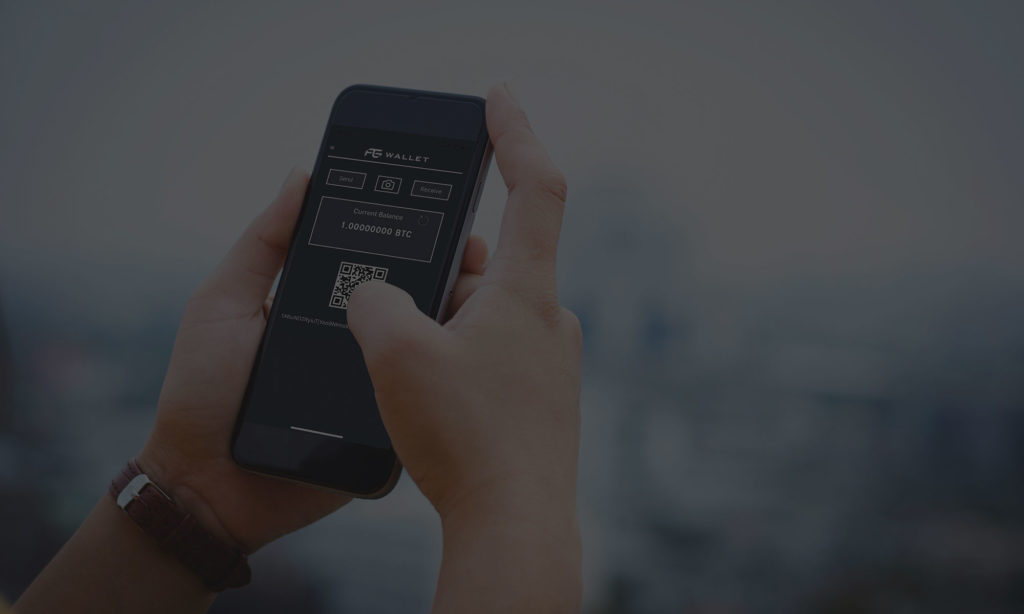Avoid Monero Freewallet Scam

Monero Freewallet is a mobile cryptocurrency wallet that claims to offer a convenient and secure way to manage your digital currencies. It boasts a built-in exchange feature that allows users to easily convert between different cryptocurrencies. However, there have been numerous reports and allegations of Monero Freewallet being a scam. Users have complained of their funds being frozen without any explanation, with the company having complete control over users’ assets. The wallet lacks transparency, with no public wallet address or confirmation of transactions. Additionally, the company has been known to send out misleading email notifications to unsuspecting investors. With these red flags and a lack of trust within the cryptocurrency community, it is advisable to avoid Monero Freewallet and opt for more reliable and secure wallet options.
What Are the Risks of Monero Freewallet?
Monero Freewallet presents numerous risks that users should be aware of. One major risk is falling victim to scams, phishing, and social engineering attacks. Hackers may create fake websites or email messages that mimic the Monero Freewallet platform in an attempt to deceive users into disclosing their login credentials or private keys.
Another risk is downloading malware disguised as the Monero Freewallet app. These malicious programs can compromise the security of a user’s device and gain unauthorized access to their funds or personal information. Similarly, users can be tricked into downloading fake Monero wallet apps from unauthorized sources, which can also lead to irreversible financial loss.
Additionally, there is a risk of unauthorized transactions on Monero Freewallet. If a user’s wallet address or email account is compromised, attackers could use it to send or receive funds without the owner’s consent.
Overall, the risks associated with Monero Freewallet include potential scams, phishing, malware, fake wallets, fake exchanges, and unauthorized transactions. These risks can have a significant impact on users, leading to financial loss, identity theft, and compromised personal information. Therefore, it is crucial to exercise caution and adopt security measures such as using official wallets and conducting thorough research before engaging with any cryptocurrency platform.
Types of Scams
When it comes to digital currencies and crypto wallets, it’s important to be aware of the various types of scams that can put your funds and personal information at risk. One common scam involves downloading malware disguised as the Monero Freewallet app, which can compromise your device’s security. Another risk is falling victim to fake Monero wallet apps from unauthorized sources, leading to irreversible financial loss. Furthermore, unauthorized transactions can occur if your wallet address or email account is compromised, allowing attackers to manipulate your funds without your consent. It is essential to stay vigilant and ensure you only use trusted and secure wallet services to safeguard your crypto assets against these potential scams.

Phishing Scams
Phishing scams are a prevalent and concerning issue within the cryptocurrency community, and Monero Freewallet has unfortunately not been immune to these deceptive tactics. Scammers often use various strategies to trick unsuspecting investors into revealing their sensitive information, such as wallet addresses and email credentials.
The risks associated with falling victim to Monero Freewallet phishing scams can result in significant financial losses. These scams typically involve tricking users into sharing their wallet seed phrase or private keys, providing scammers with complete control over the user’s crypto assets. This allows them to drain the victim’s funds without any recourse.
To protect yourself and your investments, it is crucial to remain vigilant and follow some essential tips. First and foremost, only use official wallets or trusted wallet services for storing your digital currencies. Be cautious of any email messages or notifications that request you to confirm transactions or provide sensitive information.
Additionally, enable two-factor authentication (2FA) on your wallet accounts to add an extra layer of security. Stay informed about the latest phishing tactics targeting Monero Freewallet by regularly checking the official website or joining relevant cryptocurrency communities.
By being proactive and exercising caution, you can mitigate the risks associated with Monero Freewallet phishing scams and safeguard your hard-earned cryptocurrencies. Remember, a few simple steps can protect your investments from falling into the hands of these despicable scam artists.
Malware Scams
Malware scams targeting cryptocurrency wallets pose a significant threat to the security of users’ funds and personal information. These scams employ various tactics to deceive unsuspecting investors and compromise their digital assets.
One common method employed by scammers is the creation of fake websites that mimic legitimate cryptocurrency wallet platforms. These websites often prompt users to download a wallet application that is infected with malware. Once installed, the malware can gain access to the user’s wallet seed phrase or private keys, allowing the scammers to gain complete control over the funds.
Another method used by scammers is through infected downloads. They lure users into downloading corrupted wallet software or plugins, which once installed, can compromise the security of the user’s funds and personal information.
Social engineering attacks are also prevalent in malware scams. Scammers may pose as trustworthy individuals within cryptocurrency communities and send convincing emails or messages requesting users to provide sensitive information or confirm transactions. Unsuspecting users who fall for these tactics may unknowingly disclose their wallet details, resulting in compromised security.
To protect yourself, always verify the authenticity of wallet platforms and only download from official sources. Be cautious of any suspicious downloads or email requests asking for sensitive information. Additionally, regularly update your security software and keep yourself informed about the latest malware scams targeting cryptocurrency wallets.
Fake Wallets and Exchanges
Fake wallets and exchanges are common scamming techniques used by cybercriminals to deceive users and gain access to their funds. These scams typically involve the creation of fraudulent websites or the distribution of infected downloads.
One method scammers employ is the creation of fake websites that mimic legitimate cryptocurrency wallet platforms. These websites trick users into downloading a wallet application that is infected with malware. Once installed, the malware can obtain the user’s wallet seed phrase or private keys, giving the scammers complete control over the user’s funds.
Scammers also use infected downloads to compromise the security of users’ funds and personal information. They entice users to download corrupted wallet software or plugins, which then compromise the integrity of their funds.
Social engineering attacks are another prevalent tactic employed in these scams. Scammers may pose as trustworthy individuals within cryptocurrency communities and send convincing emails or messages requesting sensitive information or transaction confirmations. Users who fall for these tactics may unknowingly disclose their wallet details, resulting in compromised security.
To protect yourself, it is essential to verify the authenticity of wallet platforms and only download wallet applications from official sources. Look out for suspicious downloads or email requests asking for sensitive information. Stay informed about the latest scams targeting cryptocurrency wallets and regularly update your security software to mitigate the risk of falling victim to these scams.
Social Engineering Attacks
Social engineering attacks are a common tactic employed by scammers to manipulate individuals into divulging sensitive information or performing actions that benefit the scammer. These attacks rely on psychological manipulation and the exploitation of human vulnerabilities.
One common technique used in social engineering attacks is impersonation. Scammers might pose as trusted individuals or organizations, such as crypto wallet platforms or customer support teams. By assuming a familiar identity, scammers can gain the trust of their victims and convince them to disclose their wallet details or perform certain actions.
Phishing emails are another prevalent method used in social engineering attacks. Scammers send fraudulent emails that appear to be from reputable sources, such as crypto wallet providers, requesting users to click on malicious links or provide their login credentials. Unsuspecting victims may fall for these scams and unwittingly compromise the security of their funds.
Phone calls are also a favored method for scammers engaging in social engineering attacks. By calling individuals and posing as cryptocurrency experts or service providers, scammers can coerce their victims into revealing sensitive information or making fraudulent transactions.
It is crucial to be vigilant and skeptical when receiving emails, messages, or phone calls related to cryptocurrency. Always verify the authenticity of the communication and refrain from sharing sensitive information or performing actions that could compromise your security.
Fake Websites and URLs
One of the tactics commonly used by scammers in a Monero Freewallet scam is the creation of fake websites and URLs. These fake websites are designed to closely mimic the official Monero Freewallet site, making it difficult for users to distinguish between the real and the fake.

Scammers create these fake websites with the intention of tricking users into providing their personal information and access to their wallets. They may use phishing emails to direct unsuspecting users to these fake websites, where they are then prompted to enter their login credentials or other sensitive details.
These fake websites and URLs are meant to deceive users into thinking they are interacting with the legitimate Monero Freewallet platform. However, the scammers behind these websites are just looking to gain access to users’ wallets and steal their funds.
To avoid falling victim to these scams, it is important to exercise caution and always double-check the website URL before entering any sensitive information. Official Monero Freewallet websites will have a secure connection and a valid SSL certificate. Additionally, be wary of any emails requesting login credentials or directing you to log in through a link. It is always best to visit the website directly by typing the URL into your browser instead of clicking on suspicious links.
By being vigilant and taking these precautions, you can protect yourself from falling prey to Monero Freewallet scams involving fake websites and URLs.
Unauthorized Transactions
Unauthorized transactions can occur when users of Monero Freewallet fall victim to scams or phishing attacks. These transactions can have serious risks and consequences for users.
Scammers employ various tactics, such as phishing scams and social engineering attacks, to trick users into providing their login credentials or sensitive information. They may send fraudulent emails that appear to be from Monero Freewallet, requesting users to confirm their wallet address or enter their private keys. Once scammers gain access to users’ wallets, they can initiate unauthorized transactions and transfer funds to their accounts.
The risks associated with unauthorized transactions are substantial. Users may face financial losses, as funds are transferred without their consent or knowledge. Additionally, unauthorized transactions can damage the reputation of Monero Freewallet and the overall trust within the cryptocurrency community.
To protect themselves from unauthorized transactions, users should exercise caution and follow preventive measures. They should carefully review emails and websites, ensuring that they are interacting with the official Monero Freewallet platform. Users should never disclose their login credentials or sensitive information to anyone, especially through email or suspicious links.
Implementing two-factor authentication and regularly monitoring wallet activity can also help detect and prevent unauthorized transactions. By staying vigilant and practicing good security habits, users can safeguard their funds and minimize the risks associated with unauthorized transactions.
Fake Promises of Profits
Monero Freewallet scams often involve scammers making fake promises of profits to entice unsuspecting investors. These scammers employ various tactics that prey on people’s desire to make a quick buck in the volatile world of cryptocurrency.
One common tactic is to make grandiose claims of high returns or guaranteed profits. They may create an illusion of success and use persuasive marketing techniques to convince individuals to invest in their scheme or use their wallet services. These false promises lure in innocent investors who hope to capitalize on the incredible surge of interest in digital currencies.
However, falling for these fake promises can lead to disastrous consequences. Scammers may gain access to users’ wallets, stealing their hard-earned cryptocurrencies and leaving investors with substantial financial losses. Moreover, when word spreads about such scams, it tarnishes the reputation of platforms like Monero Freewallet and erodes trust within the cryptocurrency community.
To protect themselves, investors must be skeptical of any promises of guaranteed profits and conduct thorough research before investing or using a crypto wallet. It’s crucial to verify the credibility of the platform and to only use trusted and reputable services. By exercising caution and staying informed, users can avoid falling victim to Monero Freewallet scams and protect their investments from fraudulent schemes.
How to Protect Yourself From Monero Freewallet Scams?
To protect yourself from Monero Freewallet scams, it is crucial to be aware of the tactics used by scammers and take necessary precautions. In this article, we will explore the steps you can take to safeguard your digital currencies and avoid falling victim to these fraudulent schemes. By understanding the risks involved and implementing safety measures, you can protect your investments and maintain trust within the cryptocurrency community.

Research Before Investing or Using a Wallet
When it comes to investing in digital currencies or using a cryptocurrency wallet, thorough research is essential. One prominent risk in the crypto world is falling victim to scams, and it is crucial to be aware of potential dangers, such as Monero Freewallet.
Monero Freewallet has been associated with scams and fraudulent activities, leaving unsuspecting investors at risk of losing their hard-earned funds. This is not limited to Monero Freewallet alone; many other crypto wallets and exchanges have also been involved in despicable practices.
To avoid becoming a victim, it is vital to thoroughly investigate any wallet or exchange before entrusting them with your funds. Look for wallets that offer features like cold storage, two-factor authentication, and dedicated wallets for each type of cryptocurrency. Avoid centralized wallets that allow a single entity to have complete control over your assets.
Additionally, always verify the reputation and credibility of the wallet or exchange. Look for user reviews, check if the company has a transparent team, and confirm if they provide proper security measures. Avoid wallets that require you to provide excessive personal information or have a history of frozen customer assets.
Double-Check All URLs, Emails, and Websites You Visit
When it comes to protecting yourself against Monero Freewallet scams, one crucial step is to double-check all URLs, emails, and websites you encounter. Scammers often create fake websites that mimic the appearance of legitimate wallet providers, seeking to deceive unsuspecting users.
To ensure your protection, always verify the authenticity of the URLs you visit. Check for misspellings or variations in the domain name that may indicate a scam. Be cautious when clicking on links in emails or messages and independently search for the website instead. It is also essential to check for secure connections by looking for “https” and a padlock symbol in the URL bar.
Fake websites and phishing scams pose significant risks, as they can lead to unauthorized transactions and stolen cryptocurrency. By double-checking the URLs, emails, and websites you encounter, you minimize the chances of falling victim to these scams.
Remember, it’s better to be safe than sorry. Always exercise caution when interacting with online platforms and take the necessary measures to protect your digital assets. Stay informed, stay vigilant, and stay one step ahead of scammers.
Use Cold Storage Solutions for Maximum Security
When it comes to safeguarding your cryptocurrency assets, cold storage solutions offer maximum security. Unlike hot wallets, which are connected to the internet, cold storage involves storing your coins offline. This concept provides several advantages over hot wallets.
The primary benefit of cold storage is the enhanced security it offers. By keeping your coins offline, you eliminate the risk of hackers gaining unauthorized access to your funds. Offline storage means that your private keys are not exposed to the internet, making it virtually impossible for cybercriminals to steal your assets.
Cold storage solutions typically utilize hardware wallets, paper wallets, or offline computers to store your cryptocurrency securely. These methods provide added layers of protection against potential security breaches. Hardware wallets, for example, store your private keys on a physical device that is isolated from the internet. Paper wallets involve generating and printing out your private keys on paper, eliminating any online exposure.
By utilizing cold storage, you can ensure that your cryptocurrency investments remain safe and secure. It is crucial to prioritize security in the digital landscape, where hackers are always looking for vulnerabilities. Protecting your assets through offline storage is a prudent step for any crypto investor.
Avoid Free Offers and Promises of High Returns
When it comes to Monero Freewallet scams, it is crucial to be vigilant and avoid free offers and promises of high returns. These scams often entice unsuspecting investors with the allure of easy wealth, but they come with significant risks and potential dangers.
One of the primary risks associated with these scams is the likelihood of losing funds. Scammers capitalize on people’s greed and desire for quick profits, enticing them to invest their hard-earned money into fraudulent schemes. Unfortunately, these promises of high returns are often nothing more than empty words, and investors end up losing their funds.
Scammers employ various tactics to lure unsuspecting investors. They may use fake testimonials and reviews to create a false sense of credibility. They may also offer free bonuses or rewards to entice people to sign up. These tactics are designed to manipulate people’s emotions and cloud their judgment, making it easier for scammers to exploit them.
To protect yourself from these types of scams, it is important to exercise caution and skepticism. Be wary of any offers that seem too good to be true, especially those promising high returns or freebies. Do thorough research before investing or engaging with any platform or company. Verify the legitimacy of the company and check if they are registered and regulated. Most importantly, never disclose your personal or financial information to unknown sources.
By being aware of the risks, staying skeptical, and doing your due diligence, you can protect yourself from falling victim to Monero Freewallet scams and avoid the potential dangers of losing your hard-earned funds. Remember, if something seems too good to be true, it probably is.
Conclusion
In conclusion, it is crucial to be aware of the risks and scams associated with Monero Freewallet to protect your funds and personal information. Scammers prey on greed and offer false promises of high returns, leading unsuspecting investors to lose their hard-earned money. By following these steps and remaining vigilant, you can protect yourself from falling victim to Monero Freewallet scams and keep your funds secure.








